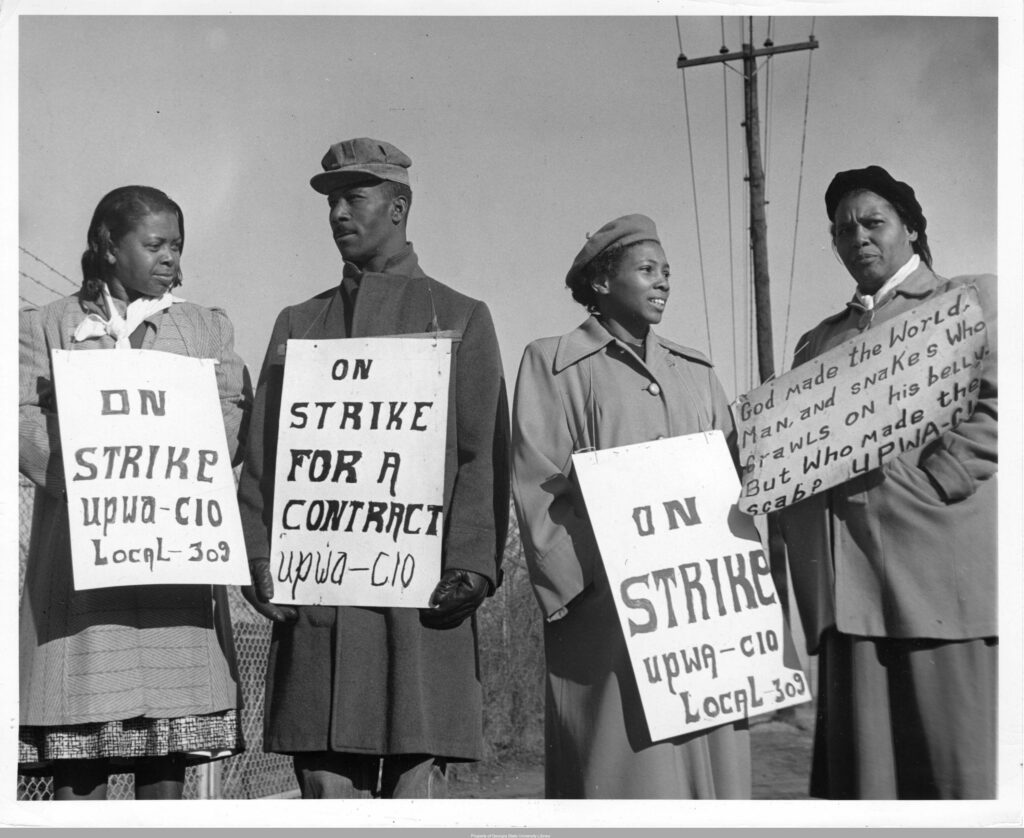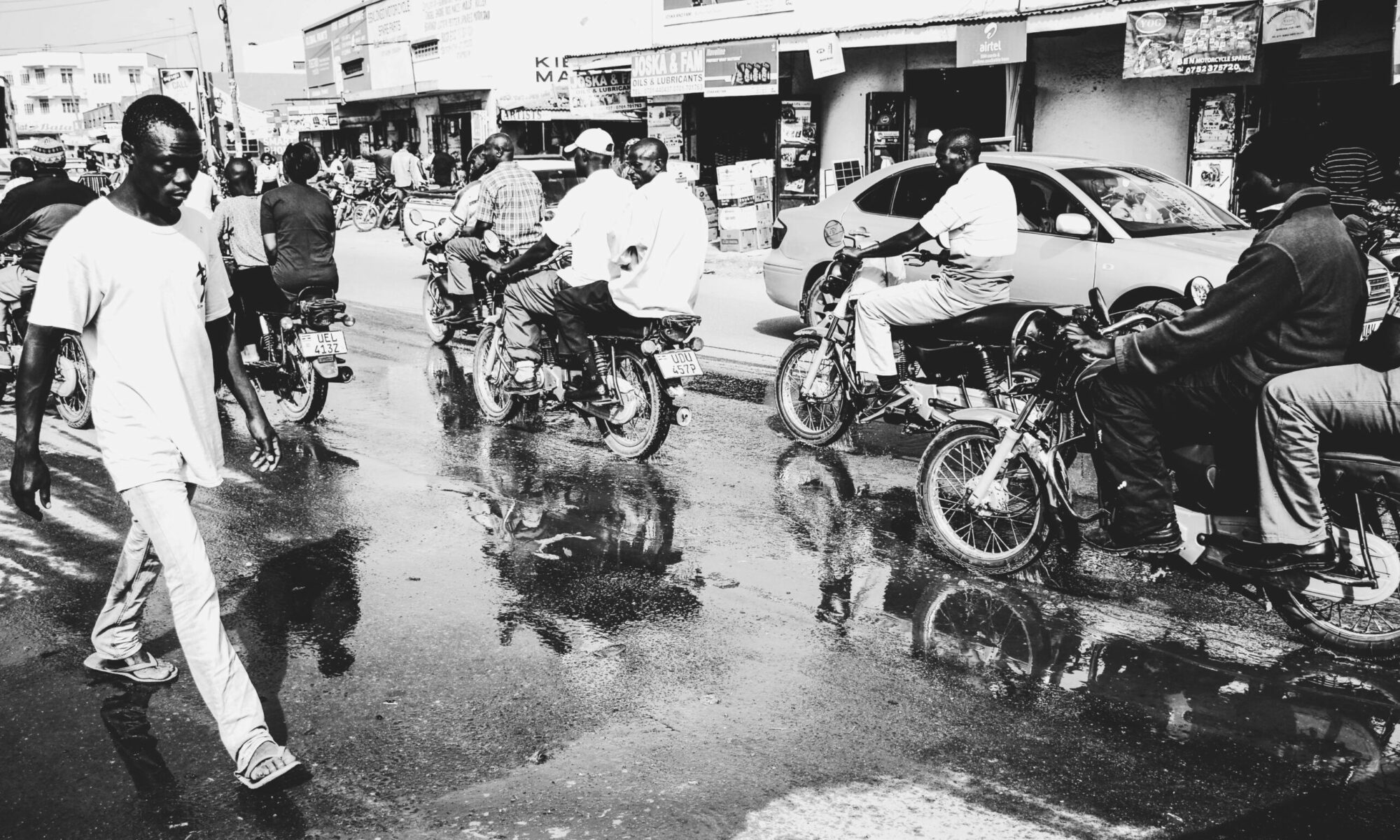Writing Global Histories of Socio-Economic Rights
University of Sheffield, 5-6 June 2025

Human rights have risen to prominence in recent historical research. The post-1948 human rights regime, its precursors, and the role of human rights within processes of decolonisation have become central themes in current historiography. Yet socio-economic rights, especially those related to work, have yet to be tackled comprehensively by historians, not least from a global perspective.
How have work-based rights been articulated, implemented and contested within and across different nations and regions? What transnational connections have facilitated the diffusion of rights related to work (broadly conceived), and how have conceptions of such rights varied across time and place? And, what are the challenges to historians trying to write these histories from a global and connected perspective?
This workshop, organised under the auspices of the AHRC-funded GLOSOC project (Global Socio-Economic Rights, Local Contexts: www.glosoc.org), seeks to develop new conceptual approaches to writing a global history of socio-economic rights.
To register for online or in-person attendance, please email glosoc@sheffield.ac.uk before the 20th of May to receive further information.
Thursday, 5 June
1030-11 Arrival/Coffee
11-11:15 Introduction
Julia Moses, University of Sheffield
11:15-12.30 Panel 1: Theorizing Social Rights about Work
Chair: Chris Renwick, University of York
Speakers:
Steven Jensen, Danish Institute for Human Rights – Economic and Social Human Rights in the 20th Century: Analytical Reminders
Ben Jackson, University of Oxford – W. Arthur Lewis and Global Fabianism
Niels Boender, University of Edinburgh – Late-colonial Labour ‘Stabilisation’ in East Africa – A Social Rights Issue?
12.30-1.15 Lunch
1.15-2.30 Panel 2: Labour Movements and the role of the ILO
Chair: Daniel Laqua, Northumbria University
Speakers:
Stefan Berger, Ruhr-Universität Bochum, Germany – Remembering the Struggle for Social and Economic Rights: the Example of the Ruhr Area in Germany
Laura Caruso and Andres Stagnaro, Universidad Nacional de San Martin / CONICET, Argentina – Defining and Regulating Labour: A Connected History of the ILO and Latin America [ONLINE]
Bernard Thomann, INALCO, Paris – ‘Social dumping’ and the Minimum Wage in twentieth-century Japan
2.30-2.45 Coffee
2:45-4:00 Panel 3: Women’s Work
Chair: Max Chuhila, University of Dar es Salaam
Speakers:
Poppy Cullen, Loughborough University – ‘Women’s Work’ in NGO activities in 1950s Kenya
Selin Çağatay, Central European University, Vienna – Women’s Work and Labour Rights in Family Planning Education: The Impact of International and Local Actors in Turkey, 1960s-1980s [ONLINE]
Juliet Tiwaah Gyabeng and Daniel Worku, École des Hautes Études en Sciences Sociales, Paris – ERC Women at Work Project: Writing about the lives and labor of women workers: potters and dressmakers in urban Ghana and Ethiopia (1920-1980) [ONLINE]
7:30 Workshop Dinner for Speakers/Panel Chairs
Friday, 6 June
10:00-11:30 Panel 4: Inclusion
Chair: Sebastian Gehrig, University of Sheffield
Speakers:
Kerem Oektem, Frank Nullmeier, Delia Gonzalez de Reufels and Laura Andrea Álvarez Tobar, University of Bremen, Germany – Inclusion of Social Groups into Social Security: A Global and Historical Analysis [ONLINE]
Kiran Mehta, University of Leicester – Contesting Workers’ Rights in Prison: Britain and its Empire in the long Nineteenth Century
Rory Hanna, University of Sheffield – Ideas of Worker Participation in Management during the Mid-Twentieth Century: Local Variations, Common Challenges
11:30-1:00 Lunch and concluding discussion
Chair: Emma Hunter, University of Edinburgh
